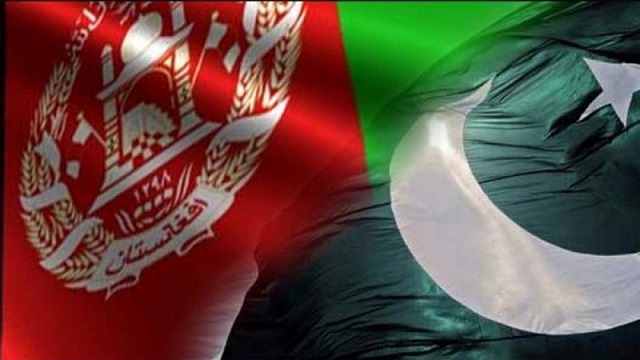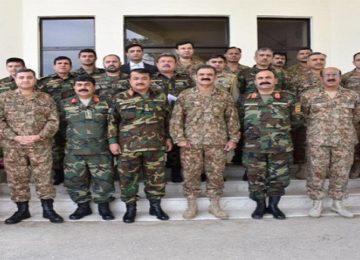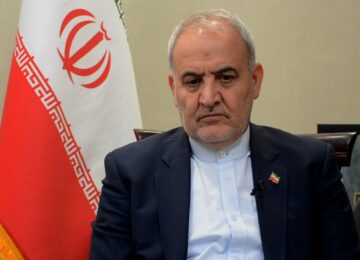January 14, 2021
In a strong and constructive overture by Islamabad, but this time directly through parliamentary diplomacy steered by the Speaker National Assembly of Pakistan, Asad Qaiser, Pakistan and Afghanistan are going forward in an institutional manner to develop what may be called in future as comprehensive partnership between the duo.
Not to forget; both sides are not without strings attached to historical baggage, which includes mistrust, negative perceptions, non-cooperation, restrictive visa regime and transit and trade barriers etc. In 2019, the bilateral trade took a nose dive to US $ 800 million from US $ 2.5 billion in 2011. Additionally, due to border frictions, 50% of Afghan Transit Trade also shifted from Pakistan to Iran.
With these challenges in the rearview mirror, the Speaker took the initiative to mitigate the situation and unshackle the huge potential of trade and investment between the two countries. He formed an Executive Committee of the Pak Afghan Parliamentary friendship group. The Committee had a cross-party representation. MNAs with expertise in international trade law and commerce were brought in along with representation from regions most affected by the dip in bilateral trade like erstwhile FATA and Chaman.
Various clusters of issues were identified and task forces were established to deal with those issues in a focused manner. Over 15 institutional stakeholders were co-opted in the Committees and task forces. These inter-alia included Commerce, Foreign Affairs, Interior, FBR, State Bank and Railways. They were given a simple overarching objective. To increase the number of Transit Trade containers clearing the border crossing points from an average of then 250 to 2000. It was a time when over 12,000 account Transit Trade containers were stuck at airports with 4000 more between Karachi and the border crossing points like Torkhum and Chaman. Container used to take anywhere between 28 to 40 days between airports and border crossing points with Afghanistan. There were illegal and extorted parking areas and route where the trucks were forced to stop and made to pay anywhere between Rs.10,000 to 60,000. The situation was really grim. The distrust of Afghans was at an all-time high.
Asad Qaiser frequently and regularly called meetings of all stakeholders, made them sit together and work out sustainable solutions to over 50 big and small issues responsible for the dire straits. The forum was so successful that it even exceeded its own expectations. A highly liberal visa regime was introduced for Afghans wishing to travel to Pakistan. In just October and November, the Pakistan Embassy and its consulates in Afghanistan issued over 150,000 visas. These included 30,000 business visas. Three new border crossing points (Ghulam Khan, Kharlachi and Angoor Adda) were operationalized for Transit Trade. Illegal staging areas were closed down and the time taken by a Transit Trade container to clear Pakistan came down to 3 days from 28 days. In just four months, the level of container clearance had surpassed 2700 per day, nearly 11 times than the July 2020 levels. On the heels of these developments, a grand trade and investment forum was organized in Islamabad, which was attended by over 150 Afghans including Speaker of the Afghan Parliament – Wolesi Jirga – along with his seven heads of standing committees, policymakers and big businessmen.
The beauty of this initiative is that progress was achieved under the cardinal principle that Parliament is a recommendatory and oversight body and will not interfere in the affairs of the Executive and lot can be achieved in trade with Afghanistan without compromising the security imperatives in vogue.
These Parliamentary endeavors tremendously reduced the distrust between Pakistan and Afghanistan. Afghans were so appreciative that after a long time they became more than willing to finalize a Preferential Trade Agreement with Pakistan along with the next generation agreement on Afghan Pakistan Transit Trade.
The stage is all set now for a rapid and sustainable expansion of bilateral trade as well. Its potential is immense and anywhere between 6 to US $ 8 billion. If Pakistan is able to tap this opportunity well, job growth in KP and Balochistan would be substantial. According to some estimates, for every billion dollar of exports to Afghanistan, 500,000 jobs are created in Pakistan. Hence, these measures could substantially alleviate poverty through job creation in areas at the forefront of war against terrorism. It would thus result in a paradigm shift in the security situation there.
The next step is to put the goodwill created to good use and negotiate revision of Afghanistan’s policy framework vis-à-vis Pakistan’s Transit Trade in a way that we are able to reach out to the economies of the five Central Asian Republics through it, opening up a huge market of over 300 million souls for the Pakistani industrial and services sectors. If and when that happens, huge opportunities for Pakistani exports would manifest.
The lesson from Speaker’s initiative on Afghanistan is simple, trade should lead the way and must not be made hostage to the ups and downs of politics or security. Speaker’s initiative has shown the way of how Parliament can play its role in the expansion of Pakistan’s trade and investment ties with the world. It has set a very high bar and a gold standard for the Parliamentary diplomacy in future.
Published under an arrangement between Afghan Studies Center (ASC) and MATRIX MAG.







